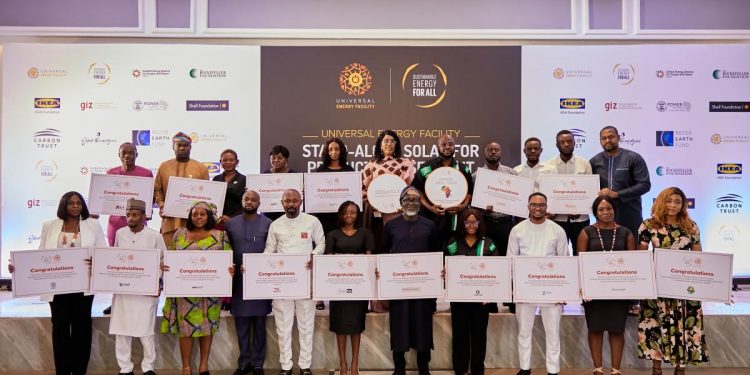Sustainable Energy for All (SEforALL) has announced the signing of grant agreements with 19 clean energy developers for the deployment of solar energy solutions across Nigeria. This initiative is part of the stand-alone solar for productive use (SSPU) program under SEforALL’s results-based financing (RBF) multi-donor fund, the Universal Energy Facility (UEF).
The project aims to deploy high-capacity solar and battery storage systems to businesses and institutions in Nigeria, with full installation and operation expected by the end of 2024.
Joseph Nganga, interim CEO of the Global Energy Alliance for People and Planet (GEAPP), emphasized the project’s contribution to a sustainable future by empowering clean energy developers. He highlighted the significance of the grant agreements in enabling developers to bring their innovative solutions to life, expressing pride in the positive impact these projects will have on many lives.
Abba Aliyu, managing director of the Rural Electrification Agency (REA), lauded the program for its potential to curb carbon emissions, enable essential services, unlock economic opportunities, and improve overall well-being. He credited the policies and capacity-building efforts undertaken over the past decade for creating an enabling environment for private sector growth within the energy sector.
Shubham Chaudhuri, country director for the World Bank, Nigeria, highlighted the complementarity between the UEF project and the Distributed Access through Renewable Energy Scale-up (DARES) project, launched by the World Bank in December 2023. He emphasized the role of innovative financing solutions, such as those provided by the Universal Energy Facility, in scaling up productive use and clean energy access, particularly for Micro, Small, and Medium Enterprises (MSMEs).
The expansion of the UEF’s SSPU program builds upon its initial launch in February 2023, which saw 10 developers receive grants to deploy SSPU units in underserved or unserved communities. Since then, over 1,600 systems have been installed, benefiting over 1,200 businesses and institutions, including health and educational facilities, across Nigeria.
The UEF’s impact extends beyond Nigeria to countries such as Benin, the Democratic Republic of Congo, Madagascar, and Sierra Leone, with thousands of Africans reportedly benefiting from the facility’s initiatives.










